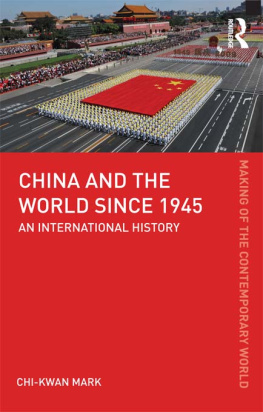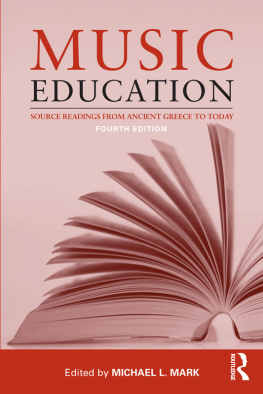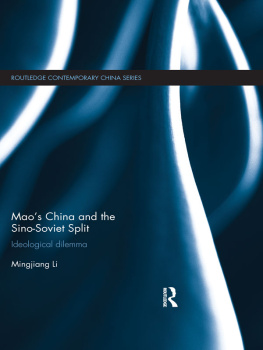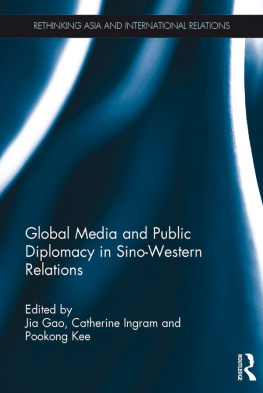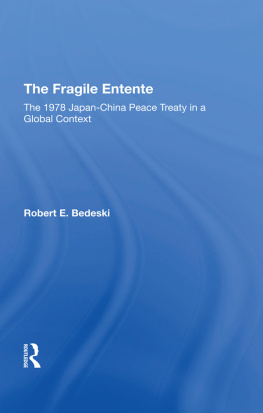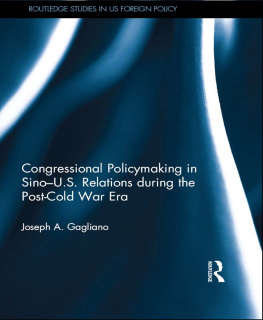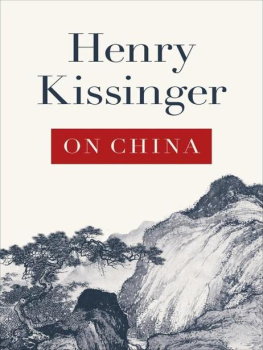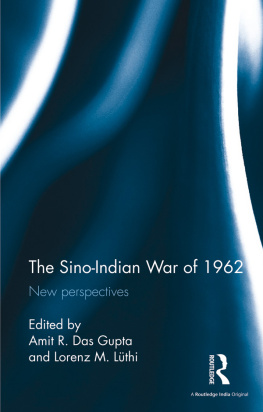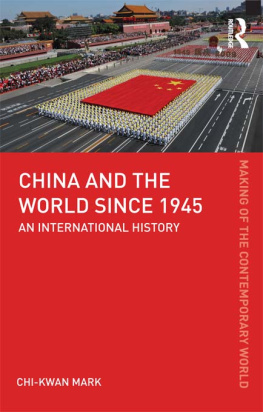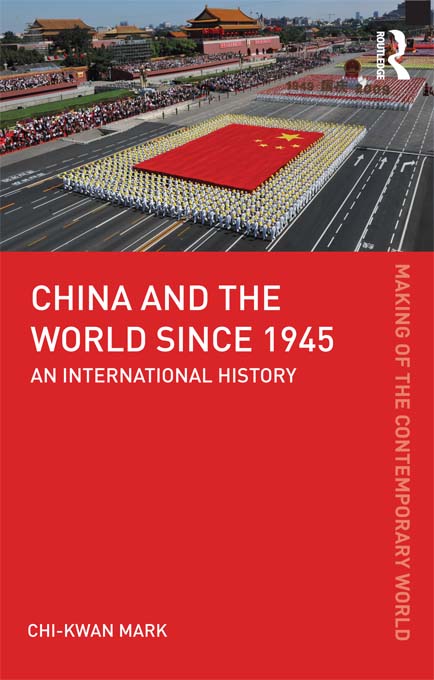China and the World since 1945
The emergence of China as a dominant regional power with global influence is a significant phenomenon in the twenty-first century. Its origin can be traced back to 1949 when the Chinese Communist Party under Mao Zedong came to power and vowed to transform China and the world. After the century of humiliation, China was in constant search of a new identity on the world stage. From alliance with the Soviet Union in the 1950s, China normalized relations with America in the 1970s and embraced the global economy and the international community from the 1980s. In China and the World since 1945: An International History, Chi-kwan Mark examines China's changing relations with the two superpowers, Asian neighbours, developing countries, and European powers.
The book offers an overview of China's involvement in the Korean War, the Sino-Soviet split, Sino-American rapprochement, the end of the Cold War, and globalization. It also assesses the roles of security, ideology, and domestic politics in Chinese foreign policy and provides a synthesis of the latest archival-based research on China's diplomatic history and Cold War international history. Examining the rise of China from a long-term historical perspective, it will be a valuable resource to students of Chinese history and contemporary international relations.
Chi-kwan Mark is Lecturer in International History at Royal Holloway College, University of London. His research interests focus on BritishAmericanChinese relations during the Cold War and Hong Kong's colonial and international history. He is the author of Hong Kong and the Cold War: Anglo-American Relations, 19491957 (2004).
The Making of the Contemporary World
Edited by Eric J. Evans and Ruth Henig
The Making of the Contemporary World series provides challenging interpretations of contemporary issues and debates within strongly defined historical frameworks. The range of the series is global, with each volume drawing together material from a range of disciplines including economics, politics and sociology. The books in this series present compact, indispensable introductions for students studying the modern world.
Asylum Seekers and Refugees in the Contemporary World
David J. Whittaker
China Under Communism
Alan Lawrence
The Cold War
David Painter
Communism and its Collapse
Stephen White
Conflict and Reconciliation in the Contemporary World
David J. Whittaker
Conflicts in the Middle East since 1945
Beverley Milton-Edwards and Peter Hinchcliffe
Decolonization
Raymond Betts
Dividing and Uniting Germany
J. K. A. Thomaneck and Bill Niven
The Extreme Right in Western Europe
Paul Hainsworth
International Economic Relations since 1945
Catherine R. Schenk
The International Economy Since 1945
Sidney Pollard
Islamic Fundamentalism Since 1945
Beverley Milton-Edwards
Latin America
John Ward
Pacific Asia
Yumei Zhang
The Soviet Union in World Politics
Geoffrey Roberts
Southern Africa
Jonathan Farley
States and Nationalism in Europe since 1945
Malcolm Anderson
Terrorists and Terrorism in the Contemporary World
David J. Whittaker
Thatcher and Thatcherism
Eric J. Evans
United Nations in the Contemporary World
David J. Whittaker
The Uniting of Europe
Stanley Henig
US Foreign Policy since 1945
Alan P. Dobson and Steve Marsh
Women and Political Power in Europe since 1945
Ruth Henig and Simon Henig
China and the World
since 1945
An International History
Chi-kwan Mark

First published 2012
by Routledge
2 Park Square, Milton Park, Abingdon, Oxon OX14 4RN
Simultaneously published in the USA and Canada
by Routledge
711 Third Avenue, New York, NY 10017
Routledge is an imprint of the Taylor & Francis Group, an informa business
2012 Chi-kwan Mark
The right of Chi-kwan Mark to be identified as author of this work
has been asserted by him in accordance with sections 77 and 78 of
the Copyright, Designs and Patents Act 1988.
All rights reserved. No part of this book may be reprinted or
reproduced or utilised in any form or by any electronic, mechanical,
or other means, now known or hereafter invented, including
photocopying and recording, or in any information storage or
retrieval system, without permission in writing from the publishers.
Trademark notice: Product or corporate names may be trademarks
or registered trademarks, and are used only for identification and
explanation without intent to infringe.
British Library Cataloguing in Publication Data
A catalogue record for this book is available from the British
Library
Library of Congress Cataloging in Publication Data
Mark, Chi-Kwan.
China and the world since 1945: an international
history/Chi-kwan Mark.
p. cm. -- (The making of the contemporary world)
Simultaneously published in the USA and Canada--T.p. verso.
Includes bibliographical references.
China--Foreign relations--1949 2. ChinaForeign
relations--19121949. I. Title.
DS777.8.M37 2012
327.51--dc22
2011008295
ISBN: 978-0-415-60650-9 (hbk)
ISBN: 978-0-415-60651-6 (pbk)
ISBN: 978-0-203-80496-4 (ebk)
Typeset in Times New Roman
by Taylor & Francis Books
Contents
Preface
The emergence of the People's Republic of China (PRC) as a dominant regional power with global influence is a significant phenomenon in the twenty-first century. Its origin can be traced back to 1949 when the Chinese Communist Party (CCP) under Mao Zedong came to power and vowed to transform China and the world. This book is about the rise of China from the perspective of international history since 1945. It examines the aims, features, and ramifications of China's foreign policy and relations with the wider world. Viewing China's Cold War experiences as part of the long process of its full integration into the international community in the twenty-first century, the book links the past with the present and provides insight into the making of the contemporary world.
Looking at the 60 years from 1949 to 2009, one may be puzzled by the many twists and turns in China's foreign policy and international relations from a revolutionary Communist state to America's tacit ally to a responsible great power. Some scholars identify ideology as the main driving force behind Chinese foreign policy particularly during the Maoist period. Committed to the ideology of Marxism- Leninism, Mao Zedong and his comrades were determined to restore China's rightful position in the world. Others hold that realpolitik rather than ideology dictated China's foreign policy during the Cold War and especially in the age of reform since 1978. Like other sovereign states in the international system, China aimed to maximize its security, power, and wealth.
Ideology and security should not be seen in dichotomous terms, however. Thus, some scholars look beyond these two factors to explore the roles of perception, images, and identity in shaping Chinese foreign policy. Seeing international history as intercultural relations, they focus on how China viewed itself, defined its identity, and interacted with other powers in the world. At the heart of China's search for a new national identity after 1949 was the history and memory of the century of humiliation, a period when China became a victim of foreign imperialism.

